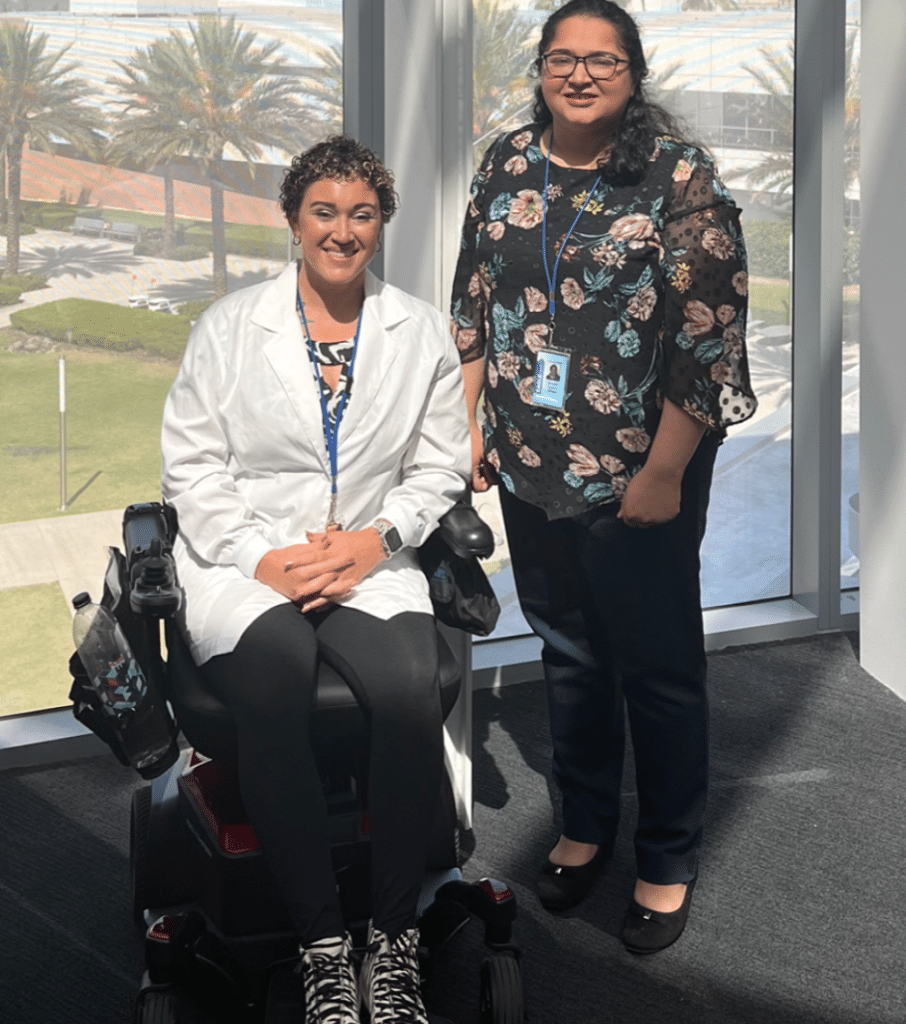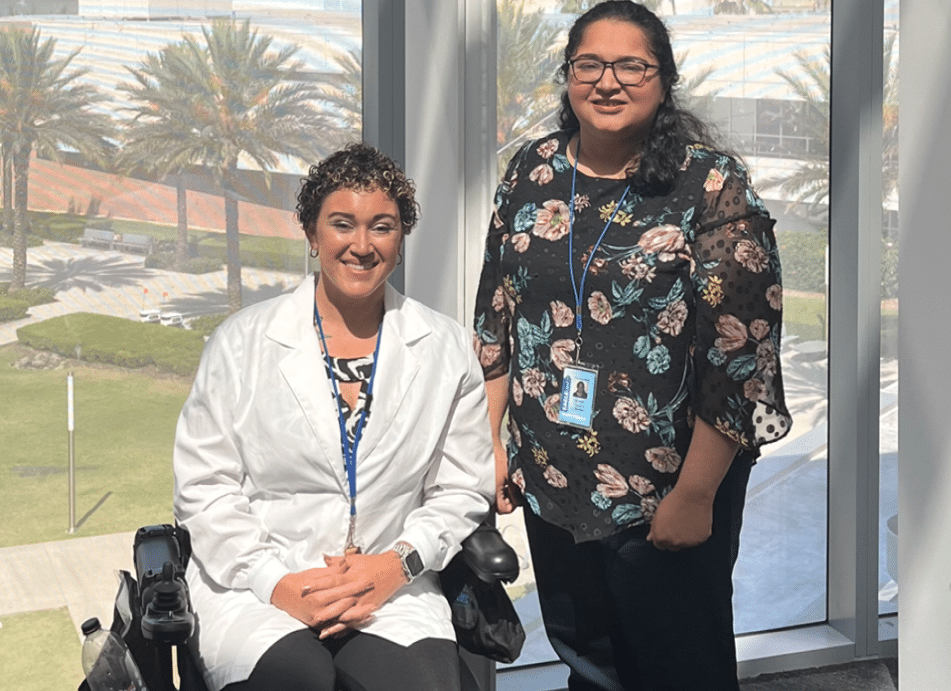Disabled Undergraduate Sustainability Researcher Helps Develop Microplastic Particle Characterization Library
Danielle Hoelle, a Florida International University senior studying Sustainability and the Environment, is living with rare disease, Ehlers Danlos Syndrome (EDS) and an autoimmune-neuromuscular disability, but she wanted hands-on experience in a research laboratory. While she had spent the Spring semester lobbying for Florida to adopt a single-use plastics regulation bill (HB 1145) and management bill (SB 1580), she found herself continually intrigued with the public health risk that microplastics pose on populations and the global environment.

Hoelle became one of ten motivated students selected worldwide for a National Science Foundation research apprenticeship program at Embry Riddle Aeronautical University. Her focus was on microplastic particle separation and characterization. Hoelle said this was a dream come true in more than one way. In her sustainability endeavors, she could finally help make a dent in microplastic research that she felt was lacking, and she soon realized that despite her physical disability, she could finally be the scientist she always knew she was capable of being.
“I got motivated when I realized that I would have the opportunity to step outside of my comfort zone and help advance research on microplastics,” said Hoelle.
Hoelle worked with Dr. Madiyar using a method of particle separation within a non-uniform electric field known as Dielectrophoresis (DEP). Their research showed that DEP successfully captured, separated, and identified diverse types of microplastics and that they could create a library of characterized microplastics for further research.
In 2021, microplastic particles were seen in the high orbit atmosphere from the Arctics to the Himalayan Mountain range. They arrived by oceanic uptake, evaporation, movement through rain and snow, making traveling across oceans and lands a breeze. Many of the origins of these particles are unknown. Microplastics are not only found in the air and water but are also now being found in the lungs and bloodstreams of humans and animals. Microplastic particles are the remains of plastic degradation and pose a sincere and long-term health risk to the planet and its inhabitants.
“Finally, we will not only be able to identify the types of microplastics out there, but also their chemical composition, and that will ultimately lead us to understand just how far these particles are traveling to reach these secluded destinations,” said Hoelle about her research.
As the 10-week program went forward, Hoelle developed new skill sets and irreplaceable relationships with her mentor, colleagues, staff, and faculty members that she did not expect would lead her to a new career so quickly. By the time she left the program and using the exceptional skills that she learned through her research; she became Assistant Director of the Honors Program at Embry Riddle Aeronautical University and will now help recruit the world’s best aerospace and aviation students into research that fits their areas of interest.
“This program took me to new heights that I would never have imagined I was capable of until I tested my strengths. I am more than grateful for this opportunity and will recommend it for years to come!”, said Hoelle.
Submitted by: Danielle Hoelle, Embry Riddle Aeronautical University; used with permission.
Founded in 1978, the Council on Undergraduate Research (CUR) focuses on providing high-quality and collaborative undergraduate research, scholarly, and creative activity. Among the many activities and networking opportunities that CUR provides, the organization also offers support for the professional growth of faculty and administrators through expert-designed institutes, conferences, and a wide-range of volunteer positions. The CUR community, made up of nearly 700 institutions and 13,000 individuals, continues to provide a platform for discussion and other resources related to mentoring, connecting, and creating relationships centered around undergraduate research. CUR’s advocacy efforts are also a large portion of its work as they strive to strengthen support for undergraduate research. Its continued growth in connections with representatives, private foundations, government agencies, and campuses world-wide provides value to its members and gives voice to undergraduate research. CUR is committed to inclusivity and diversity in all of its activities and our community.
CUR focuses on giving a voice to undergraduate research with learning through doing. It provides connections to a multitude of campuses and government agencies, all while promoting networking and professional growth to its community.


